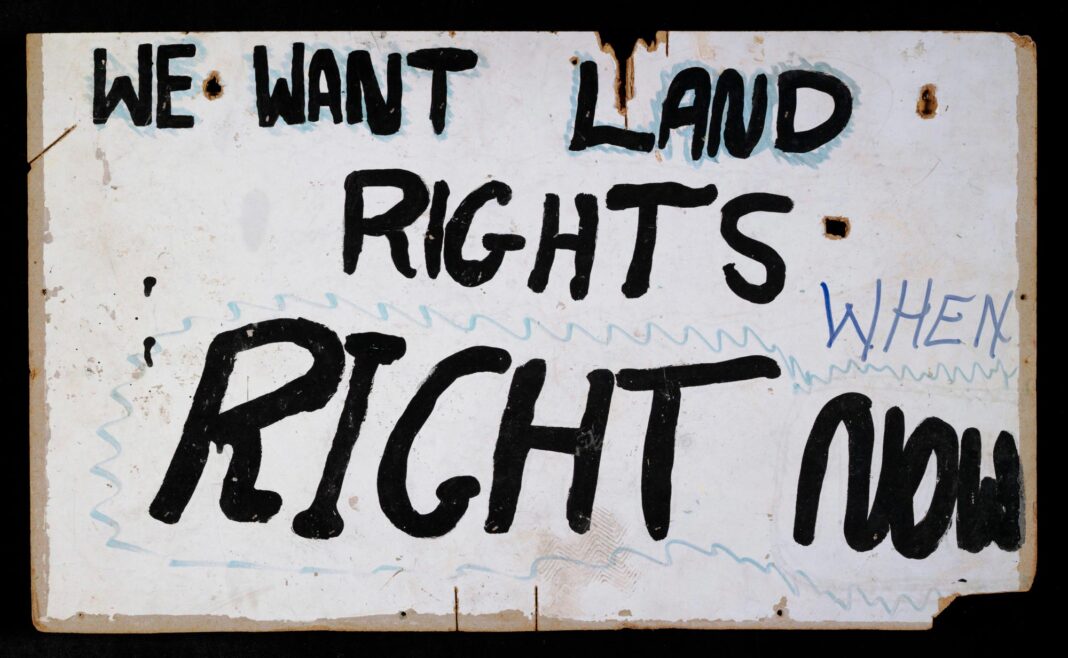The Land Development (LDO) (Amendment) Bill got through the second reading in Parliament last Friday. Ignorance and indifference exhibited by Members of Parliament on the issue of farmers’ indebtedness is outrageous. Many of them seem to believe that enabling farmers to mortgage their land to banks is a one-stop solution to all farmer’s problems. The Bill was hurriedly rushed through without creating an environment to deliberate on crucial clauses in the Bill.
The LDO Amendment Bill is a wolf in sheep’s clothing. It has been misrepresented as a ‘progressive step’ giving people more autonomy and control over their land.
The LDO Amendment Bill is a wolf in sheep’s clothing. It has been misrepresented as a ‘progressive step’ giving people more autonomy and control over their land. By including the rights of women to inherit the land, the Bill is presented as a forward step. We would like to point out that it is not the first time governments rode on the backs of women to bring in anti-people laws. Identical to flexible labour laws which eroded working people’s rights, the government is exploiting the demands of women to privatise and commodify land.
This Amendment comes at a time when farmers are already deeply in debt. Farmers who are struggling with the shock of the sudden imposition of organic cultivation and the massive drops in yield, are already struggling with a loss of income.
The LDO Amendment Bill enables farmers to mortgage their grant lands to banks without needing permission from the Government Agent of the area. As a result, the Bill seemingly carries an empowering aura for farmers to have the ‘right to mortgage’ their lands. However, thousands of farmers who have lost their land to banks, finance companies and local mudalalies know that the freedom to mortgage land has nothing to do with free will or liberation. Farmers mortgage their lands and consequently lose their lands out of sheer desperation.
Instead of considering the lived realities of farmers and working people from low-income communities, the new LDO Amendment Bill stealthily reverses progressive land reform laws brought in to ensure that banks and finance companies cannot grab farmlands from poverty stricken farmers, and steal their most valuable and often, their only asset.
This Amendment comes at a time when farmers are already deeply in debt. Farmers who are struggling with the shock of the sudden imposition of organic cultivation and the massive drops in yield, are already struggling with a loss of income. The deteriorating economic situation will deepen the indebtedness of farmers. The farmers’ debt which forced hundreds of farmers to commit suicide in the past, as well as the microfinance debt crisis which prevails at present, predominantly in farming areas, explains the precarious conditions in which farmers currently live. In this context, the implementation of the new LDO Act, will lead to a large-scale land transfer from farmers to banks and finance companies, and create a mass of landless farmers.
In this light, the Bill is a reactionary law aiming to restore “Landlordism” from the bygone days, when lands were owned only by a few in society. In addition, it also coincides with the attempts to renegotiate the Millennium Challenge Corporation (MCC) proposal which was vehemently turned down by the people of Sri Lanka. Popular opposition to privatising lands, which would empower agri-business and multinational companies to seize lands from farmers, played a significant role in taking down the MCC.
What does the Government hope to gain by removing the oversight which provides a sense of protection over farmers’ land from the prying hands of banks, finance companies and multinational companies? Does the Government want to help banks and the finance and corporate sectors acquire more lands from our farmers? Why is the Government interested in dispossessing our farmers of their last remaining asset, and enriching banks and the corporate sector?
We demand that the Government:
-
- Withdraw Clauses 4 and 9 of the LDO Amendment Bill before it is passed as law.
- Not use its majority in Parliament to pass laws that are detrimental to small scale farmers in our country.
- Remember that it will be responsible when farmers’ lands are lost to banks in the future, and that the Government is accountable to these farmers.
Signatories:
- All Employees Union of Information and Telecommunication
- Ceylon Federation of Trade Unions
- Ceylon Mercantile Industrial & General Workers Union (CMU)
- Ceylon Teachers’ Union (CTU)
- Commercial and Industrial Workers’ Union (CIWU)
- Dabindu Collective Sri Lanka
- Dabindu Movement
- Eastern Social Development Foundation (ESDF)
- Federation of Media Employees Trade Unions
- Hashtag Generation
- Human Elevation Organisation (HEO), Ampara
- Human Rights Office (HRO), Kandy
- Institute of Social Development (ISD)
- Liberation Movement
- Movement for National Land and Agricultural Reform (MONLAR)
- National Fisheries Solidarity Organisation (NAFSO)
- People’s Alliance for Right to Land (PARL)
- Protect Union
- Revolutionary Existence for Human Development (RED)
- Right to Life (R2L) Human Rights Centre
- Shramabhimani Kendraya
- Sisterhood Initiative
- Sri Lanka All Telecommunication Employees Union
- Standup Movement Lanka
- Standup Workers Union
- Telecommunication Engineering Diplomates Association
- United Federation of Labour
- United General Services Union
- Women Aid Network
- Women’s Action Network (WAN), Mannar
- Women’s Development Federation
- Young Lawyers Association
17th March, 2022
